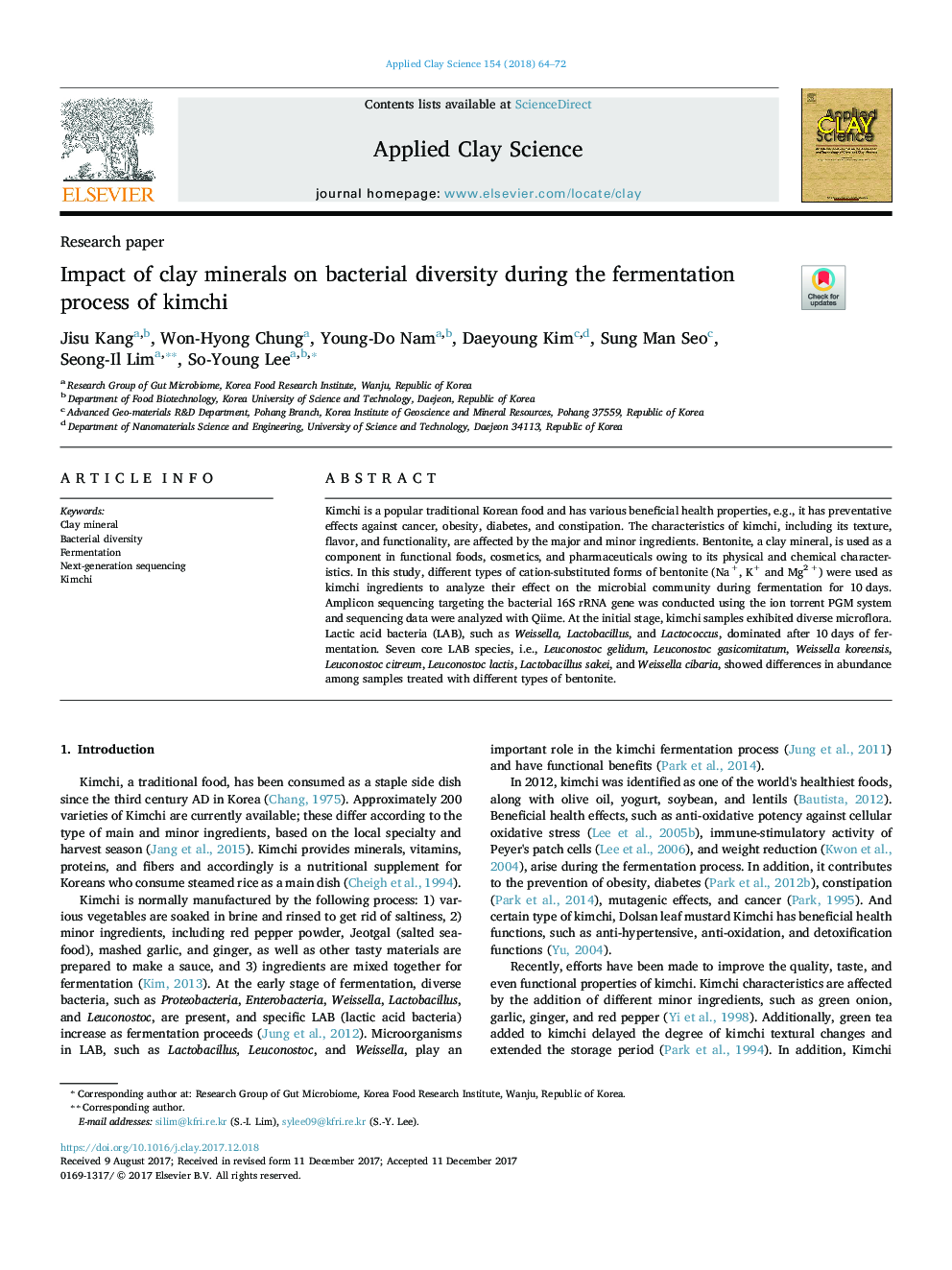| Article ID | Journal | Published Year | Pages | File Type |
|---|---|---|---|---|
| 8046169 | Applied Clay Science | 2018 | 9 Pages |
Abstract
Kimchi is a popular traditional Korean food and has various beneficial health properties, e.g., it has preventative effects against cancer, obesity, diabetes, and constipation. The characteristics of kimchi, including its texture, flavor, and functionality, are affected by the major and minor ingredients. Bentonite, a clay mineral, is used as a component in functional foods, cosmetics, and pharmaceuticals owing to its physical and chemical characteristics. In this study, different types of cation-substituted forms of bentonite (Na+, K+ and Mg2Â +) were used as kimchi ingredients to analyze their effect on the microbial community during fermentation for 10Â days. Amplicon sequencing targeting the bacterial 16S rRNA gene was conducted using the ion torrent PGM system and sequencing data were analyzed with Qiime. At the initial stage, kimchi samples exhibited diverse microflora. Lactic acid bacteria (LAB), such as Weissella, Lactobacillus, and Lactococcus, dominated after 10Â days of fermentation. Seven core LAB species, i.e., Leuconostoc gelidum, Leuconostoc gasicomitatum, Weissella koreensis, Leuconostoc citreum, Leuconostoc lactis, Lactobacillus sakei, and Weissella cibaria, showed differences in abundance among samples treated with different types of bentonite.
Related Topics
Physical Sciences and Engineering
Earth and Planetary Sciences
Geochemistry and Petrology
Authors
Jisu Kang, Won-Hyong Chung, Young-Do Nam, Daeyoung Kim, Sung Man Seo, Seong-Il Lim, So-Young Lee,
